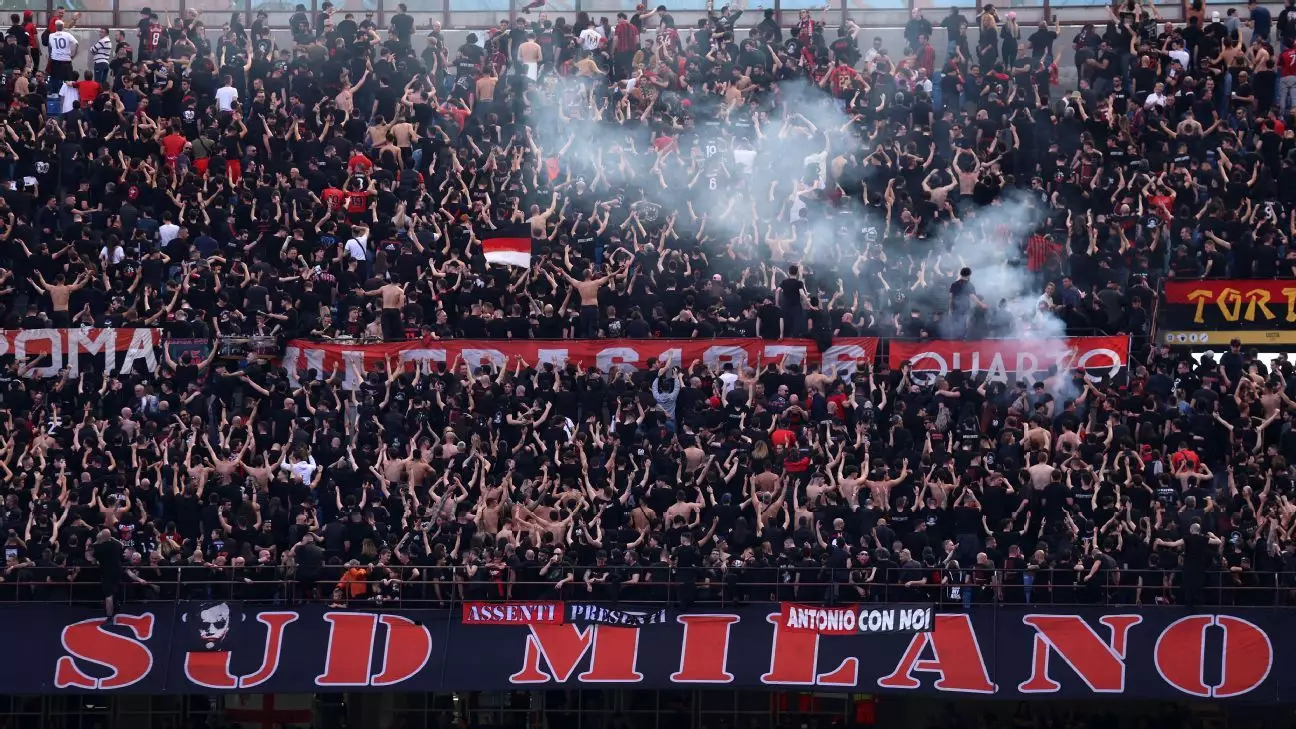In a groundbreaking operation, Italian law enforcement apprehended 19 individuals allegedly linked to the notorious ‘Ndrangheta mafia, which has surged in influence to become one of the most formidable criminal organizations globally. This significant police action has sent shockwaves through the world of sports, particularly affecting the passionate fan bases of Serie A clubs AC Milan and Inter Milan. As the investigation unfolds, serious allegations ranging from extortion to assault have emerged, highlighting a deeply entrenched web of organized crime infiltrating the beautiful game.
Prosecutors revealed that the accused were vying for control of lucrative business ventures surrounding Milan’s iconic Giuseppe Meazza Stadium, affectionately known as San Siro. The scope of the criminals’ ambitions included not only operations related to ticket sales and food services but extending even to parking facilities and souvenir merchandising. Such overreach underscores a troubling nexus between organized crime and sports, where the passionate devotion of fans becomes a potential avenue for illicit profit. The convergence of both worlds demonstrates a vile twist that tarnishes the spirit of competitive sports.
Among those taken into custody were prominent figures from the fanatical ultra groups of both AC Milan and Inter Milan. Noteworthy are Luca Lucci and Renato Bosetti, leaders of their respective fan groups, with Lucci previously serving time for drug-related offenses. The presence of such individuals in leadership roles raises critical questions about the extent to which these organizations are capable of separating themselves from criminal influence. Furthermore, the involvement of Giancarlo Lombardi, once revered in AC Milan circles as “The Baron,” illustrates how deeply the criminal element has seeped into the heart of fan culture.
The Italian anti-mafia prosecutor, Giovanni Melillo, expressed grave concern, remarking on the escalating threat posed by organized crime infiltrating both professional and amateur football. His sentiments resonate with a growing urgency to confront these risks head-on, rather than obfuscating or dismissing them. The charged atmosphere surrounding the investigation has illuminated the pressing need for transparency and accountability within football organizations, further perpetuating the discourse around the integrity of sports.
In light of the allegations, Milan prosecutor Marcello Viola emphasized that both clubs are considered “offended parties” in this investigation. They have taken proactive measures to distance themselves from criminal elements, but he noted that the burden of proof lies with the clubs to showcase a complete severance from their supporters who veer into deviant behaviors. This call to action serves as a reminder of the complexities involved in rooting out corruption, especially within environments fueled by passionate loyalty and fervent competition.
As this situation unfolds, the critical focus should not only remain on punitive measures for those arrested but also on institutional reforms aimed at safeguarding the integrity of Italian football. Enhancing transparency, promoting ethical practices, and fostering community engagement within fan clubs are essential to ensure that the sport remains untarnished by the predations of organized crime. The fight against this insidious problem must be collective, calling for the vigilance of authorities, clubs, and fans alike, to protect the sanctity of the game they love.
